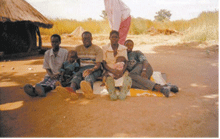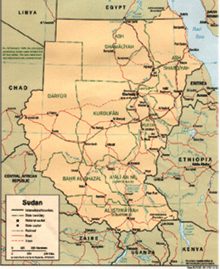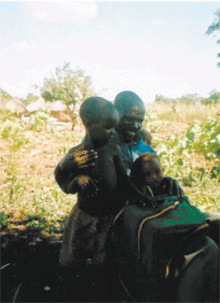What is not said when needed to be said, and what is said and never implemented in conflict resolution often breeds, prolongs, and complicates existing conflicts. Further, this even creates more conflicts and unhealthy tension in society. This article attempts to show that not speaking the truth about the Sudanese tragic past, Sudan’s policy of Arabization and Islamization, and not implementing authentically the numerous promises pledged in peace negotiations during the past two civil wars between South and Northern Sudan, has resulted into multifaceted conflicts in the Sudan, consequently making forgiveness and reconciliatory process difficult in Sudan. Speaking the unspeakable truth in resolving Sudanese conflicts is an absolute necessity if Sudanese people need to co-exist in peace. The truth about the causes of perennial civil wars in Sudan is that there are serious deep-rooted problems of injustice, the inequitable distribution of the common good, wealthy and political power that have been practiced by numerous Sudan successive governments since independence. This manifests itself historically and presently in the continuous long-term plan of Arab and Islamist government in Khartoum to gradually and forcefully assimilate the African Sudanese into Arabism and Islamic civilization. Speaking about these truths and doing something about it is vital in forgiveness and reconciliation processes in Sudan.
Naomi Roht-Arriazza identifies four aspects of forgiveness that I find applicable in addressing Sudanese conflicts as follows:
First, forgiveness by society is never an isolated or a gratuitous act. Forgiveness is a process designed to restore moral, to reaffirm the validity of the norm that has been violated. Second, reconciliation requires that the wrongdoer admits what he did or accept what others say about it, so that the Truth can be known. Thirdly, the wrongdoer must not just admit the crime, but must also acknowledge that it was wrong. Fourthly, the wrongdoer then atones for the act and resolves not to do it again—he then compensates those who were wronged.(1)
This understanding of forgiveness and reconciliation brings not only peace in society but also healing of both victims and perpetrators. Following this model of forgiveness, the Sudanese need to recognize and speak about existing injustices. The northern Islamist and Arab dominated government in Khartoum, for example, should recognize that Southern Sudanese, Darfurians and Eastern Sudanese have equal rights in sharing opportunity in national power, wealth and in decision-making process. Racial and religious laws like Islamic Sharia that discriminate many Sudanese should be rooted out in government policy. A recognition and acceptance of this truth spoken, however bitter it is, will be the only prerequisite that will facilitate forgiveness and reconciliatory peace process in Sudan. Truth telling needs be told when dealing with forgiveness and reconciliation. In reconciliation peace processes, there should not be a pretense exhibit among the parties involved.
As Desmond Tutu writes,
Forgiving and being reconciled are not about pretending that things other than they are. It is not patting one another on the back and turning a blind eye to the wrong. True reconciliation exposes the awfulness, the abuse, the pain, the degradation, the truth. It could even sometimes make things worse. It is a risky undertaking but in the end it is worthwhile, because in the end dealing with real situation helps to bring real healing. Spurious reconciliation can bring only spurious healing.(2)
Here, Tutu’s words speak straight to the Sudanese, revealing not only to them but us to all, that forgiveness and reconciliation is painfully achieved. Signing papers or documents in agreements is without addressing deep-rooted causes of conflicts is insufficient. For instance, during the 1972 South-North Sudan peace agreement to end the seventeen years of civil war in Sudan, pertinent issues were not addressed. If some of them were tackled, they were honestly not implemented, which is a fact that resulted in cheap forgiveness and reconciliation. The consequence was the Sudan’s second deadliest civil war from 1983-2004 that claimed over 2 million lives and over 5 million internally displaced persons and refugees. These civil wars have been responsible for the deed-seated hatred, distrust and suspiciousness between South and Northern Sudanese.
In order to avoid continuous conflicts in Sudan and to promote peaceful co-existence among the various ethnic groups, a forum for truth telling similar to that of South Africa would be a good beginning to facilitate forgiveness and reconciliation in the Sudan. South Africa’s experience of seeking to tell what truly happened in the past as a priority makes truth telling necessary in resolving present Sudan conflicts from recurring in the future. The current conflicts in Darfur and Eastern Sudan, for example, are due to the fact that Sudanese have failed to tell truth in resolving their conflicts; parties involved in conflict resolution have never really faced very pertinent causes of the conflict with honesty and authenticity. A genuine will to face the Sudanese painful past by boldly addressing it through truth telling under a Truth and Reconciliation Commission is of an absolute necessity.
According to Desmond Tutu the TRC formed by Nelson Mandela and headed by him is not about revenge, retaliation or retributive justice, but it encourages accountability and responsibility among the perpetrators of social injustices. In his words, TRC “assists in the cultivation of the new culture of respect for human rights and the acknowledgment of responsibility and accountability for the new democracy it wishes to be characterized by.”(3) Instead of retributive justice, TRC emphasizes a kind of home-found restorative justice, which is African jurisprudence. “…in the spirit of Ubuntu the central concern is the healing of breaches, the redressing of imbalances, the restoration of broken relationships, a seeking to rehabilitate both the vicitims and the perpetrators, who should be given the opportunity to be reintegrated into the community they have injured by their offense.”(4) Tutu sounds here as if he extricates perpetrators from moral responsibility. No. Those identified as perpetrators are still morally responsible. His concern is more about future healthy existence as a community of people sharing the same humanity that claims us as inextricably bound together in relatedness and interdependency. He writes,
Our humanity is caught up in that of all others. We are human because we belong. We are made for community, for togetherness, for family, to exist in a delicate network of interdependence… We are sisters and brothers of one another whether we like it or not and each one of us is a precious individual. It does not depend on things such as ethnicity, gender, political, social economic, or educational status—which are all extrinsic. Each person is not just to be respected but to be revered as one created in God’s image”(5) …[and] “we are bound together by bonds of caring humanity, a universal sense of ubuntu….”(6)
In forgiveness and reconciliation peace processes, “truth telling,” Aryeh Neier writes, “is seen as an obligation to the victims, their families, and friends; as a means to resolve any doubts about what happened; as way to establish a record that, in and of itself, is an expression of respect for the worth of the victim; as a means to stigmatize those who committed great crimes;and as a way to resist predictable attempts to rewrite history.”(7)
In conclusion, a realization of our connectivity with one another by our virtue of being humans and from a religious perspective that we are all made in the image in of God, and hence, we are all brothers and sisters who need one another greatly in our daily relationship, can be a starting point to work for forgiveness and reconciliation. Sudanese and many other justice and peace loving people should keenly take the African universal sense of humanity that can help us see the other, not as stranger, but a fellow human being who needs respect, fair treatment and equal respect for human dignity. The need to administer justice and the common good in any human society is an awareness of the tact that “injustice anywhere is a threat to justice everywhere,” said Martin Luther King Jr. in his letter at Birmingham Jail.
1 Naomi Roht-Arriaza, “The Need for Moral Reconstruction in the Wake of Past Human Rights Violations: An Interview with Jose Zalaquett” in Carla Hesse and Robert Post (eds.), Human Rights in Political Transtions: Gettysburg to Bosnia (New York: Zone Books, 1999), 197.
2 Desmond Tutu, No Future Without Forgiveness (New York: Doubleday, a division of Random House, 1999), 270-271.
3 Ibid.,54-55. 4 Ibid. 5 Ibid.,196. 6 Ibid., 264.
7 Aryeh Neier, “Rethinking Truth, Justice, and Guilt after Bosnia and Rwanda” in Carla Hesse and Robert Post (eds.), Human Rights in Political Transistions: Gettysburg to Bosnia (New York: Zone Books, 1999), 39.



